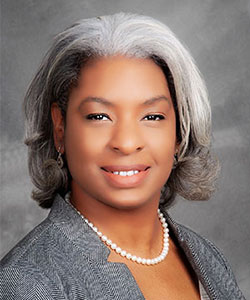By Nicole James, Vice President of Product Management CX, Oracle

Oracle Software Exec Shares Helpful Hints for Women in Tech and Beyond.
First, let me introduce myself. I am a Jersey Girl, born and raised in the Garden State. Nonetheless, I built my career by going to where the work was. That willingness, plus a passion for math and computer science led me to Atlanta via Austin.
I thrived in tech, a field where women and minorities, like myself, were uncommon in part because I was always inquisitive and eager to pursue my interests wherever they led me.
As a child, I loved math. My mother—an educator—fostered that interest. In high school, that passion was furthered by Warren Jones, a high school computer science teacher. Jones had his class design video games. Once a game was finished, we often rattled off lists of features and functions we wished were included and Jones would challenge us to go back and incorporate them. To this day I say if it weren’t for Mr. Jones, I would not be here. He made that computer science course so much fun.
After graduating with a computer science degree from Rutgers University, I left the East Coast for a software development job with IBM in Texas. A decade after advancing through software development roles, I left the workforce to raise a family. But five years later, a former colleague encouraged me to take a position at General Electric. I was apprehensive – unsure whether my skills were still current and if I would be an “imposter.” But I took on the challenge, accepted the position – and haven’t looked back.
THREE WAYS TO BUILD A CAREER
As someone who wants to help young women succeed in tech—and beyond—I want to share three rules of thumb for those wanting to build their careers.
1.) Always seek to learn. Observe everything. Be curious. Earlier in my career I was a sponge. I wanted to know everything, how everything worked, how the whole business worked, not just my particular area. Part of that is watching and listening to people, especially those who are moving the needle. Take in the good traits from all the leaders you encounter and incorporate them into your own leadership style.
2.) Speak up. Ask questions. This is not easy, especially early in a career but it’s better to ask a “stupid” question than to pretend to know things you don’t. This is how you learn, and frankly, if you don’t know something it’s likely that other people don’t either. In addition, most people like to be asked. They like sharing knowledge. Asking questions builds social and workplace networks that are crucial to success.
3.) Take risks. It is important to go outside your comfort zone, especially early on when it is easier to do so. Right out of college, I moved halfway across the country for that IBM job. I didn’t know anyone in Texas. It was a different climate and a new job but I was able to enhance my career by being flexible. Later, I moved again when IBM wanted me to relocate to Atlanta. Young people with fewer ties should definitely take on travel or stretch assignments, when offered.
BUILDING ON SUCCESS
Having built my own career with help from others, I want to pay it forward. While I was lucky to have several key influencers in school or at work who helped me, one critical ingredient was lacking: I had zero black women role models in tech. In my 30 years, I’ve only had one woman manager and no black women managers. This is something that must change.
That lack of representation is obvious. It’s hard to see yourself in a role if you don’t see anyone that looks like you in that role. It is very important for young black women to realize they are not alone. There were many times when I felt I was the only one experiencing something, and that was (and is) never the case. One way to ease anxiety is to find people like you in a given group or situation.
Employee Resource Groups (ERGs) help fulfill that role. Oracle, for example, has the Alliance of Black Leadership for Excellence (ABLE) as well as Oracle Women’s Leadership (OWL) as ready-made networks for people with common interests.
Both ABLE and OWL helped me acclimate to the new company and I was thrilled to meet many black women executives at the company, something I had never experienced before.
I was also happy when Oracle embraced my idea to start a new mentorship program for black women called G.E.M.S. (Greatness, Excellence, Maturity and Sincerity). Many young women feel they don’t have allies or visibility within their organizations and lack a path for advancement. That is something that can be fixed.
G.E.M.S. enrolled its first 60 applicants this year. It includes eight black women executives and four senior directors who have volunteered to take on five mentees each. The program encompasses North America in 2023 but since it received applications from as far away as Nigeria and India, we hope to expand globally next year.
The project is exhilarating. I’m so excited because I feel like we can at least touch 60 women and let them know their worth. We can show them that their presence is valuable, give them tools on how to network and show them how they can grow their influence going forward.
This year 60 young black women at Oracle. Next year? Who knows, but the upside is immense.

Nicole James
Nicole James is VP of CX Service Product Management at Oracle. She is an advocate for Oracle’s Alliance of Black Leadership for Excellence (ABLE) and Oracle Women’s Leadership (OWL).







Congratulations daughter Nicole. Nicole was feisty, inquisitive, attentive, and obedient from the womb. She was and continues to be an excellent student, teachable. Her achievements come from her Godly values, determination and my motherly motto, finish the work. Well done Nicole well done.